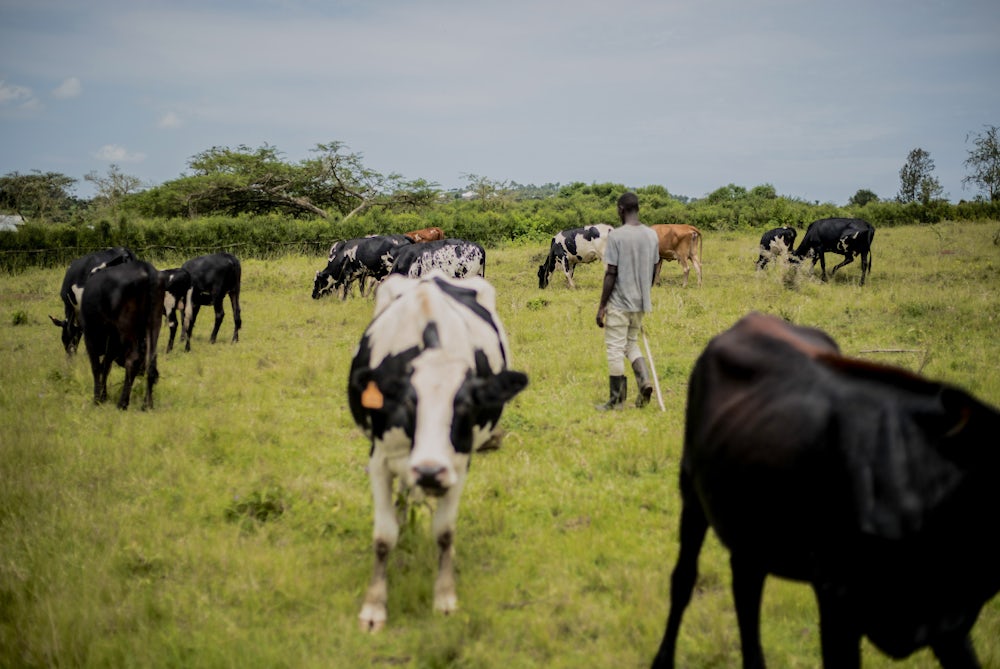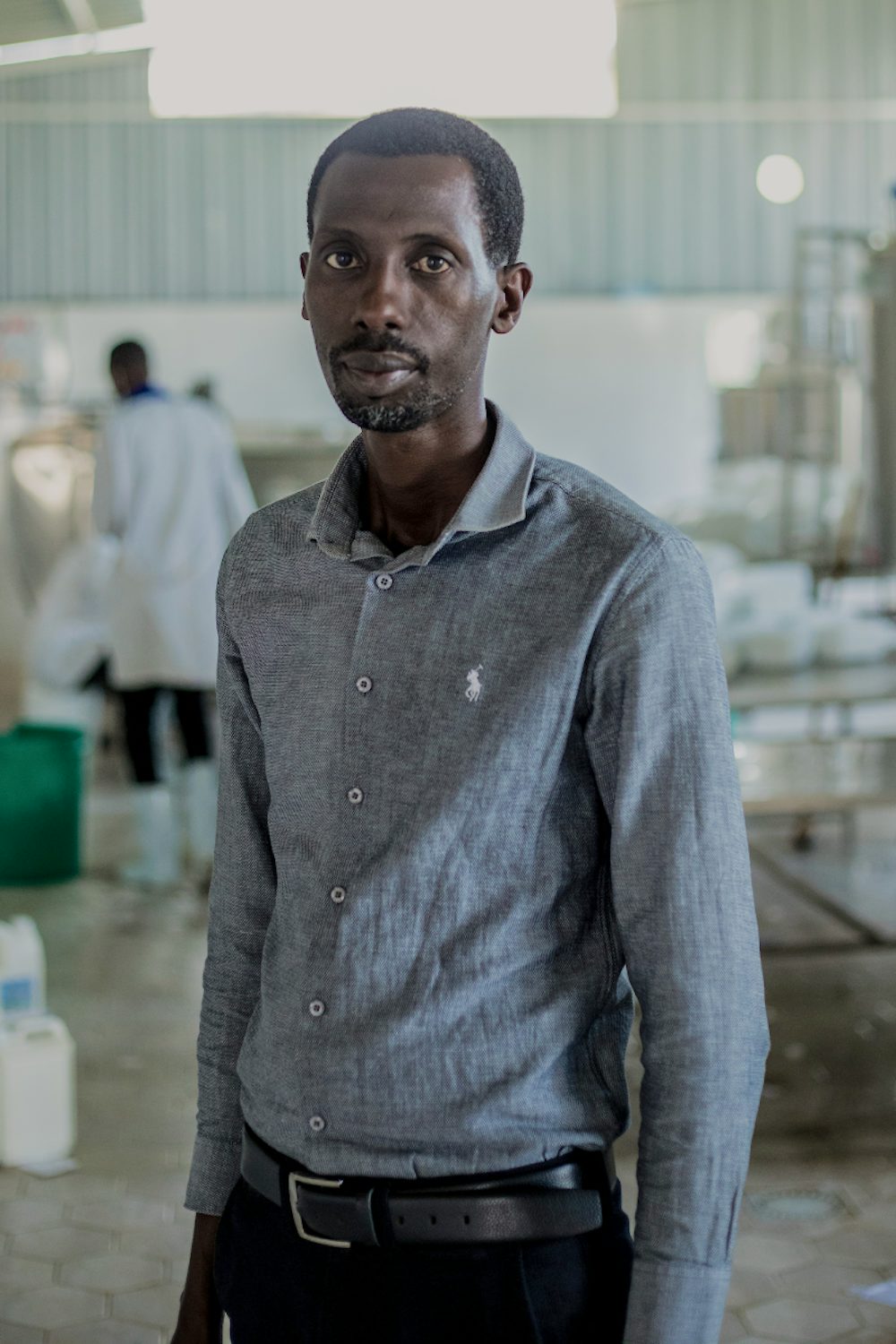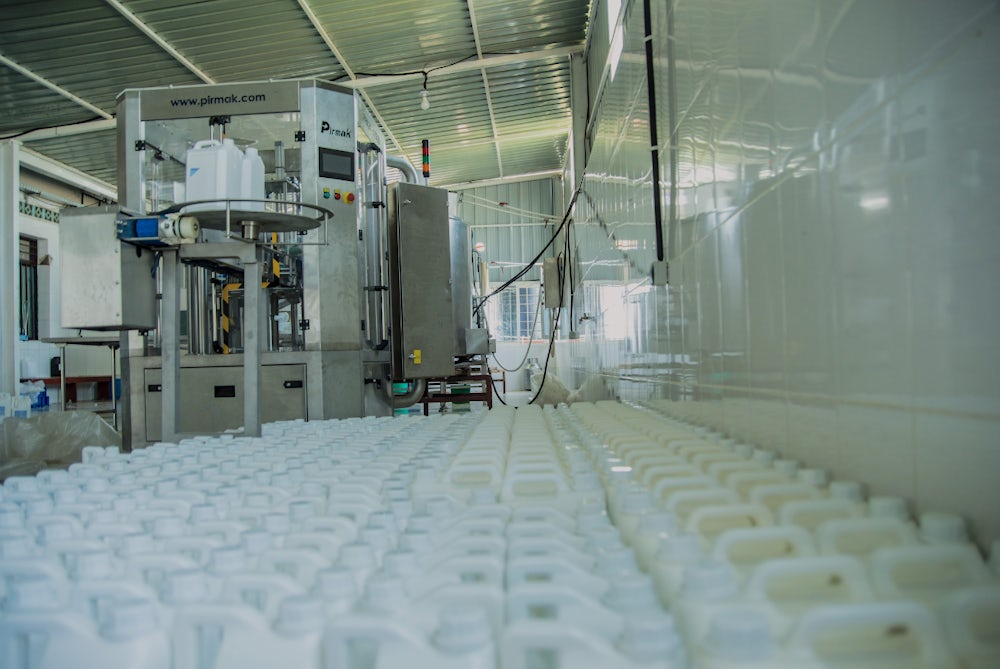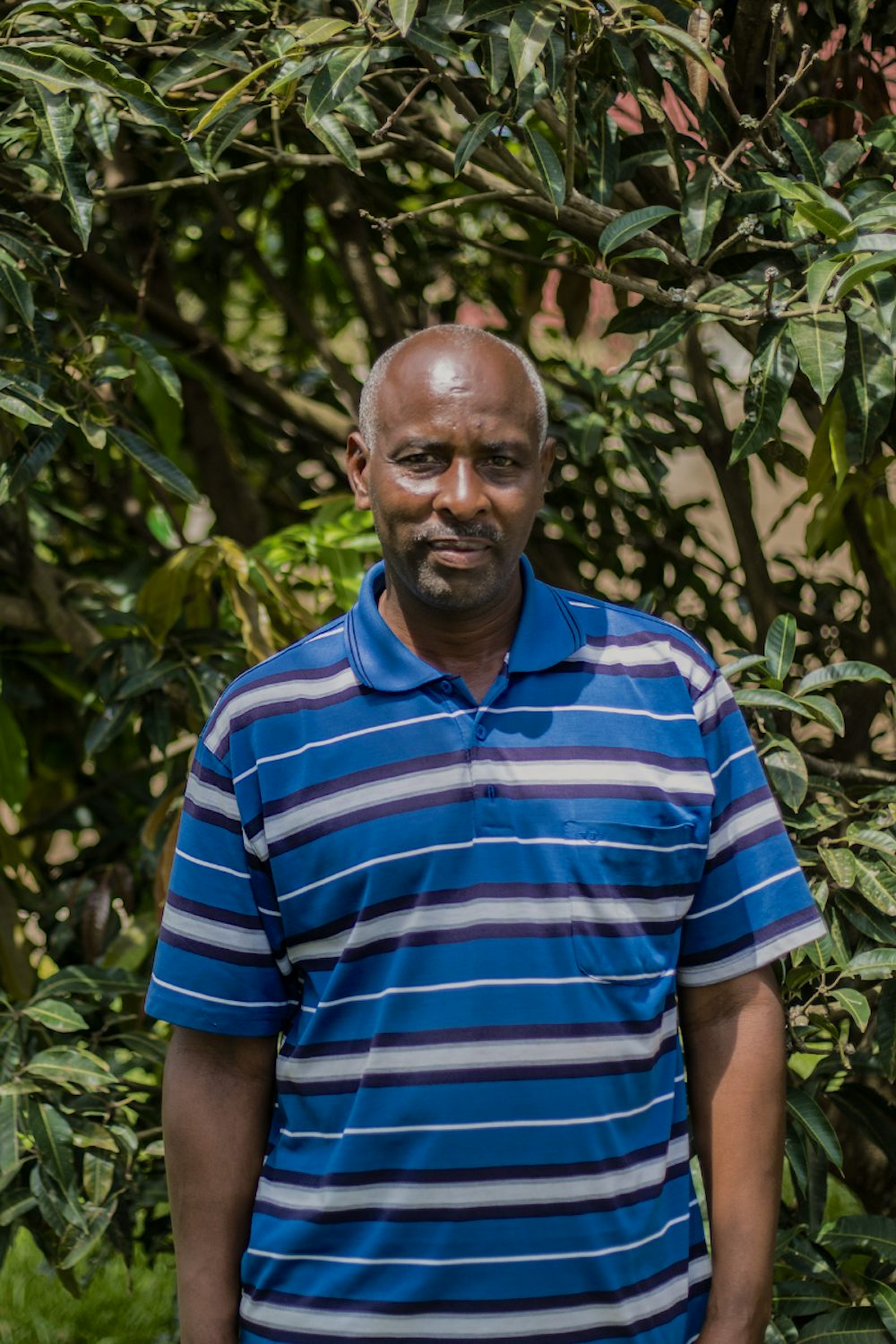Dairy is a strategic commodity in Rwanda, an in-demand product that offers a path out of poverty for rural livestock farmers and others who provide services along the value chain.
As such, the Rwandan dairy industry has experienced a remarkable transformation in recent years, particularly in the Eastern region of the country. The area's favorable climatic conditions, sufficient land area and large population of cattle keepers have made it a hub for various initiatives geared toward growing the dairy market, including the Heifer-implemented Rwanda Dairy Development Project (RDDP), a partnership with the Rwandan government and the International Fund for Agricultural Development.

One investment of RDDP is the Nyagatare Dairy Cooperative in northeastern Rwanda's Nyagatare District, home to the highest number of cattle farmers in the Eastern Province and more than 40% of the province's cattle — 217,107 of 514,594.
Heifer Rwanda has been a key partner in supporting Nyagatare Dairy Cooperative — initially established as a milk collection center in 2015 and legally registered as a cooperative in 2011 — through various RDDP initiatives since 2018.
This includes placing cows with selected dairy cooperative members, supporting artificial insemination to improve cattle breeding and building farmers' capacity on improved dairy cattle farming techniques, sustainable animal husbandry practices, disease prevention, artificial insemination and other critical skills.
"Heifer International's training transformed my cattle rearing practices," shared Damien Ndabukiye, a dairy farmer and member of Nyagatare Dairy Cooperative. "Before their support, I lost eight cows due to a lack of knowledge of proper care. Now, with the knowledge and support provided, I have successfully transitioned to improved dairy cattle, created paddocks, grown fodder and adopted proper feeding practices. The results have been nothing short of remarkable."

With improved productivity at the farm level and strengthened collection capacities, the cooperative was able to significantly increase its collective milk collection from 1,500 liters per day in 2017 to 10,000 liters per day in 2019.
However, as production and collection rapidly increased, a considerable amount of milk was still going to waste due to limited market access, as the area's primary buyer only purchased 5,000 to 7,000 liters daily.
To address this challenge, RDDP provided technical support to the cooperative to identify a viable solution and develop a business plan that would benefit the cooperative and other farmers in the community.
"This is where the idea to start a dairy processing plant originated, with the aim to utilize the excess milk and reduce the loss to the farmers," said Sam Kamugisha, manager of Nyagatare Dairy Cooperative at the time.
With a well-developed, comprehensive business plan for the dairy processing plant in hand, the Nyagatare Dairy Cooperative was able to secure an initial investment of 96 million Rwandan francs, about $87,360, from Heifer Impact Capital, Heifer International's impact investing arm. This was followed by additional financing of 140 million Rwandan francs from Heifer Impact Capital and an IFAD-supported financing facility, respectively.
The cooperative's successful funding efforts enabled it to establish a well-equipped processing plant that now produces a variety of dairy products, including yogurt, fermented milk and pasteurized milk. These efforts have created employment opportunities in the community and contributed to growth in household income for local farmers — as of 2022, the cooperative increased the purchase price for milk from 200 Rwandan francs to 300 Rwandan francs per liter.

"There has been visible improvement in our operations and assets," explained Sam. "We now have our own building, we bought equipment with value exceeding 230 million Rwandan francs, [and] we moved from zero staff to 34 members of our staff."
The cooperative has kept its milk collection business separate from the processing plant, enabling it to easily track the plant's growth over the years: With demand for its products steadily increasing in Nyagatare District, neighboring districts, the city of Kigali and other parts of the country, its annual revenue increased from 100 million Rwandan francs in 2018 to 800 million Rwandan francs in 2022. The cooperative is committed to reinvesting the majority of its earnings back into the business, with 20% distributed to members as dividends.
With the support of Heifer Rwanda and its partners, Nyagatare Dairy Cooperative has transformed from a simple milk collection center to a modern dairy hub. The Heifer Rwanda team continues to offer extension services and support to farmers in the community, resulting in increased milk quantity, higher household income, better nutrition and reduced farmer losses.
Additionally, the cooperative's investment in value-added products has created income opportunities for its members and inspired a growth mindset among dairy farmers in the community.
With an increase in local demand for milk from 5,000 liters daily in 2017 to 14,000 liters daily in 2022, farmers have been prompted to invest in improved-breed cows to meet the growing milk demand. In a community where agriculture is the primary source of income and employment, the growth of agricultural businesses such as the Nyagatare Cooperative is crucial for providing dairy farmers with stable market access and income opportunities and building the sustainability of the dairy sector across the country.

Damien Ndabukiye is a cooperative member who has greatly benefited from the Nyagatare Dairy Cooperative's growth. He grew up in a family of cattle keepers and worked as a driver before transitioning to farming for a more sustainable future and income. His involvement with the cooperative has been significant, as he is one of its founders and serves as the chairperson of the development commission.
"Our district is suitable for cattle rearing, and so dairy production is very important for me," Damien explained.
Through the cooperative, he has gained access to markets and received training on producing quality milk, as well as incidental benefits such as health insurance, savings schemes and dividends. He now owns 25 cows and has increased his milk collection from 20 liters per day in 2017 to 110 liters per day in 2022.
"As cattle farmers, the most important benefit was to get the market for the milk," said Damien. "The other benefit is related to the quality of milk training we received due to the existence of the cooperative. This has greatly improved the milk we supply."
His assets and business continue to grow: Damien owns 19 hectares of land, about 47 acres, which are used primarily for rearing cows and growing fodder, with a small portion dedicated to crop farming and banana plantations.
Damien's monthly income after expenses is 500,000 Rwandan francs, and he employs four permanent staff along with up to 10 casual workers. He plans to continue strengthening his livestock farm so that he may pass it on to his children and further modernize the cooperative to become a sustainable business for future generations.